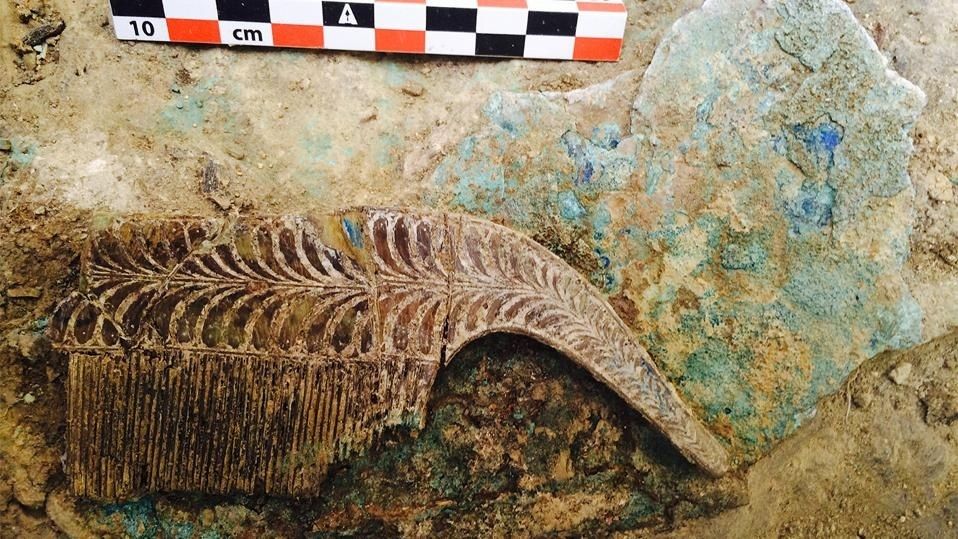Post by UKarchaeology on Nov 27, 2015 14:09:37 GMT

In late May, 10 days after breaking ground, American archaeologist Sharon Stocker received an unexpected message on her cell phone: “We've struck bronze.” Members of her research team at Ano Egliano in Hora, Messinia, in the southwest Peloponnese, had just discovered a bronze object in an unplundered beehive tomb. It was the first sign that something spectacular lay beneath the olive groves.
Months of excavations followed. They were conducted in great secrecy, with 24-hour security to keep away prying eyes and possible looters, until the discoveries were revealed to the world in late October: a bronze sword with an ivory handle covered in gold, solid gold seal rings and other ornate seals, a mirror and a gold chain were but some of the objects placed in the grave of a warrior in 1500 BC.
According to the scientists, this is one of the most impressive prehistoric funerary monuments to have been found on mainland Greece in the past 65 years.
“It is unique,” says Stocker, as she removes three sheets of tarpaulin protecting the site from the elements to reveal a narrow grave.
“When I first saw it, I couldn't have imagined that I'd spend five months in there,” says conservator Alex Zokos, one of the key members of the large team that worked on the excavation. “It was tiring because you had to sit in a confined space and work with fragile materials.”
The rich finds could form the basis of a different interpretation of the past. Until recently, archaeologists would uncover graves containing numerous bodies and scientists would separate the objects found within between the men and the women in the grave. The warrior's tomb, which contained the remains of just one individual, allows the experts to attribute all of the objects to him, even those that may be considered feminine.
Full story: www.ekathimerini.com/203796/gallery/ekathimerini/life/discovery-of-ancient-warriors-grave-hides-bonds-of-friendship
